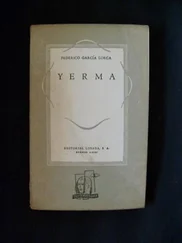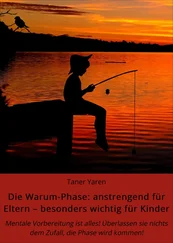There was a flagstaff on which we’d raise the flag, while a few us made sure that the British weren’t coming. I found quite a big stone around the flagstaff, I crawled to it and climbed the flagstaff quickly, angrily, painfully. I tied the stone to the end of the lanyard, let it drop, and thought, Gustav’s Fichte should see me now, and I began swinging around on the lanyard, and the stone tied to it flew around in circles, and one or two people got hit. I was given a punishment, spending a night alone in the hills tied to a concrete slab. I was scared at first. I could hear the jackals. The sea roared. But it was beautiful and filled with splendor. I was alone facing the most ancient of seas. I felt as if I were facing my Tel Aviv sea, which resided on our balcony. The silence was the only sound I could hear. My heart stopped racing. I loved those moments because they were something beyond fear, they were me and the sea and the sand. Perhaps I dozed. In the morning there was a biting chill and torrential rain began falling. Ari-nom-de-plume came along and told me he’d seen how I’d fought and had liked it. We sat and I drank rainwater I collected in my cupped palm, and then they came to release me and bring me back, and I laughed at them and they were upset. That one’s crazy, they said.
Ari-nom-de-plume was a kind of lovable rogue, which is how a young woman kibbutznik who served us in the dining hall described him, and he said she was in love with him. We didn’t talk about stuff like that back then but he said whatever he pleased. Ari-nom-de-plume and I started rowing side by side in the boat, and he told me that he came from the Shapira neighborhood and how his father who was a refrigerator porter died and how his mother was a whore. People were scared of him. He had boxer’s hands and knew how to stare at people until they got frightened. To me he looked like someone who knew a thing or two about life.
We went out in the boat and hauled up the sails, set course, Ari-nom-de-plume was at the tiller. They said they’d seen how I was such a good climber, so I climbed the mast to unfurl a sail, and suddenly, like a gust from a bellows, a strong wind came up that got savagely stronger. At first we didn’t understand exactly where the wind was blowing from because it was so unexpected. The waves heightened and the boat started to bounce. From atop the mast, to which I was clinging like a monkey, the guys below looked like dolls inside a peel in a vast sea, which looked like huge hills rising and falling and dancing. When I got back down, with great difficulty, almost falling, I saw that the commander was panicky and with the aid of a compass was trying to understand where we were sailing to. It didn’t help because the sea rose ever higher, and in the thick fog that had come down and in the heavy rain, we lost our way.
After a while we managed to see a strip of coastline in the distance, but the fog and the waves impeded our vision and we didn’t know which coast it was, and the British were still on parts of the coastline, and the commander was concerned about going too close, and what’s more, rocks could rip out the bottom of the boat. A strong gust of wind snapped the mast, the sails flew every which way and billowed with a kind of roar, and everybody had to yell at his neighbor. Ari-nom-de-plume looked at me and said, You said you’re a coward and you’re the only one who isn’t scared. I yelled back that I’m only scared until something happens, but when something does I’m not scared.
The commander threw up, the oars were swept away, and I yelled to Ari-nom-de-plume; I read in the Youth Encyclopedia that wooden boats don’t sink. Amid the tumult and the stinging rain and the whistling wind and the looming waves Ari-nom-de-plume yelled back that he hoped the boat read the encyclopedia too. We were apparently off Givat Olga and the British radar station. We heard a siren and for a moment through the fog and rain we glimpsed a British motorboat trying to forge its way toward us and it fired a few rounds but couldn’t make it through the waves. The motorboat was carried so high that it came down with a tremendous crash, and I yelled to Ari-nom-de-plume, as I swallowed seawater, that according to what I’d read in the encyclopedia, a metal boat like the British one would sink but a wooden one like ours would float, and we should hold on to the sides and the main thing is not to get too close to the shoreline because a boat’s speed increases in a storm and there are big rocks on the Netanya and Herzliya coastline.
The commander recovered from the faintness that had gripped him and he heard me and said he thinks I’m right. The boat filled with water and capsized, but just like the Youth Encyclopedia said it didn’t sink. We clutched the sides and swam with it for about six hours. Swimming for hours in winter, in freezing water, without food or drink, put us in the grip of dizziness, and because we had nothing else to do we sang stupid songs. “Get being last right out of your mind, as for being first, you’re always behind,” and “Samara hop hop, with the white-winged gull,” and “A fisherman his net did haul, zum zum zum, then he found he’d lost his balls,” and “Every wave a memento bears.” My head was spinning, my arms were like lumps of lead. Ari-nom-de-plume was swimming next to me. There was a moment when I lost consciousness and he grabbed me. He had terrible strength in his hands. We knew that this might be the end of us. One cried Mama, Mama, but she didn’t hear, and when he realized that nothing could help him, he stopped.
At the end of that chaotic sail we reached the Yarkon estuary. Headquarters at Sdot Yam had heard what had happened to us, and sailors went out searching for us in the heightening storm and found us off the estuary. Young members of Hapoel Yam jumped into the water and dragged us one by one, frozen and exhausted, into the Hapoel Yam hut and gave us blankets and dried us off. They put us into a hot shower and gave us dry clothes. They gave us water and sandwiches and said that we should all go home and those not from Tel Aviv should come to the Palmach tents by the Yona camp, which had already been taken from the British. Ari-nom-de-plume and I set off toward home through the exhibition grounds, where today they sell faucets and ice cream. The buildings were shattered and the crooked statue of the Hebrew worker stood there. We wore battle dress and gray flannel pants, which they used to issue to the Aliya Bet illegal immigration people for trips to Europe, warm shirts and sweaters, and we were wearing new shoes. Three of my friends who were youth leaders in Hashomer Hatzair were standing by the statue. Each had a bicycle. They were wearing shorts. They weren’t wearing jackets. They looked at me and my flannel pants and shoes and sneered and said angrily that I should be ashamed of myself because I’d become a capitalist and an imperialist and an oppressor of the workers and had run off to kill Arabs, and all because of the gray pants. Salt was still stuck to my eyelashes and I couldn’t tell them where I’d been and anyway I had no inclination to tell them what six hours in the freezing sea means. We were the Palmach. I went home and went to sleep.
I woke up the next morning and my hands were rigid and I couldn’t move my fingers and even under the blankets I was shivering. My mother wanted to know what had happened but we were forbidden to say where we’d been. Later, Ari-nom-de-plume, who looked like new, came over and said that the order is to lift a car from by the sycamore at Silicate. I said I didn’t know how to drive and Ari-nom-de-plume said I had nothing to worry about. We went to Silicate and looked left and right. The rain was bucketing down, there wasn’t a soul in the street and he got into the car, bent down, connected wires under the dashboard, and told me to jump in. A man in pajamas appeared from the doorway of one of the buildings and ran after us in the rain, and Ari-nom-de-plume shouted, Don’t worry, mister, the car will be waiting for you in Hadera. We got to Hadera and Ari-nom-de-plume left the car by the bus station and we walked through the sand dunes for an hour to get to the camp.
Читать дальше












